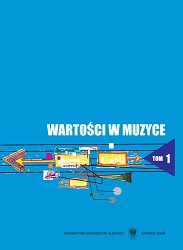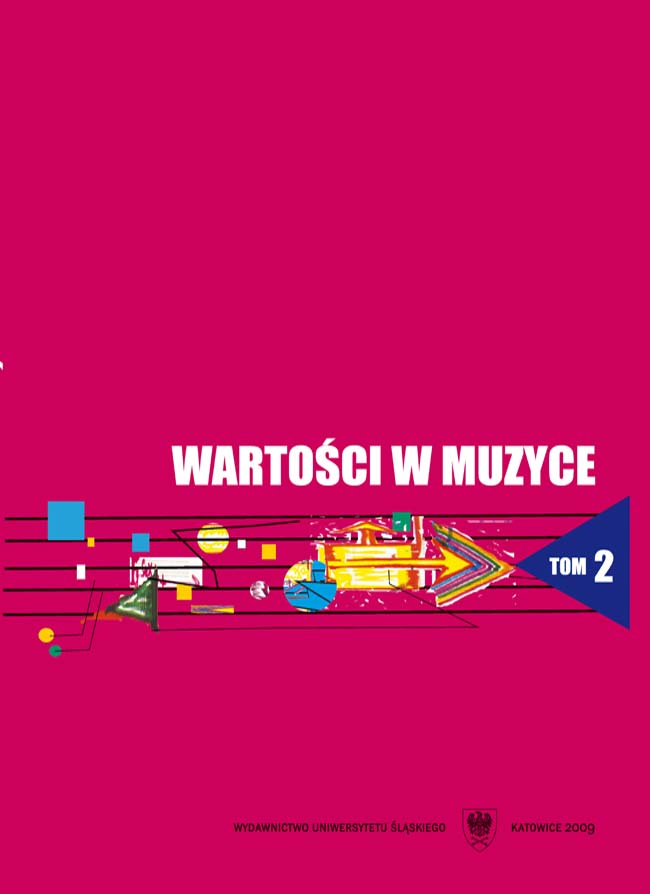
Muzyczność poezji — podstawą rozwoju wrażliwości dziecka na dobro i piękno
The author proves that the world is full of sounds and melodies, recognition and experience of which require adequate preparation. Soundmaking and natural activities of a small child enrich successively through the contact with a fable, a fairy tale, a poem and music of an every-day life. The second part of the article treats the notion of poetry musicality as a metaphor, considering three important aspects of poem fluidity i.e. its origin connected with a song, the type of the relationship between music and word; an inferior, an equivalet, and a superior one, as well as the organization of poem words and music elements creating a general structure of a work.The two subsequent sequences, i.e. the Art of beauty and good recognition in fluid poems and Child contacts with poems and polyaesthetic space constitute a concise lecture presenting different shades of beuty included in music, poetry, as well as few examples of an axiological education of students and shaping their sensitivity.Numerous references to the books in a series of Teachers to teachers and creative actions described in a volume: "Wiersze naszych dzieci" could be an inspiration especially for teachers innovators. The notion of a polyaesthetic space, though important here, undergoes realization by means of making different ways of poem instrumentation, such as anaphora, aliteration, disjunction, onomatopoeia and cocophony closer. Children use these forms without any restriction. They are close to them like the world of folk sound tools such as a whistle, a pipe, a rattle or a drumle, etc.The text closes with a formulation of 5 varieties of sensitivity including a moral, social, linguistic, aesthetic and existential one.
More...
